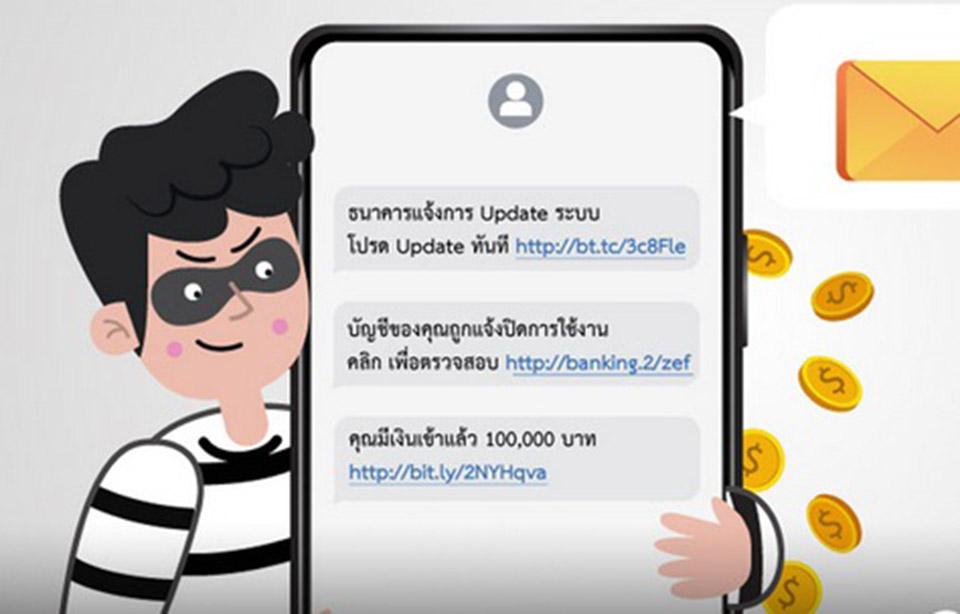
The Bank of Thailand and the Thai Bankers Association (TBA) have dismissed social media rumors that scammers use phone charging cables to steal data from their victim’s phones.
The central bank and the TBA have both dismissed recent social media claims suggesting charging cables were being used to commit cybercrime. They explained that data is taken as a result of downloading apps or SMS messages that include malware meant to get illegal access to information on phones.
Both parties have released a list of advice for bank customers to reduce the chance of falling victim to these scammers. The list includes warning not to click links in SMS or social media applications or download apps from unknown or unauthorized sources. Clients are advised to constantly update their mobile banking system and are warned to not do any financial activities on another person’s phone. They are also urged to contact their banks immediately if they discovered any suspicious transactions in their accounts.
The Bank of Thailand added that they are working with the Ministry of Digital Economy and Society, the National Broadcasting and Telecommunications Commission, the Anti-Money Laundering Office, and the Royal Thai Police to tackle this ongoing issue. A series of measures has been implemented, including security improvements for mobile apps, the shutdown of fake websites, the expansion of channels for clients to register complaints, and the launch of campaigns to inform the general public about cybercrime and its ever-changing schemes. (NNT)

 |
 |
 |




